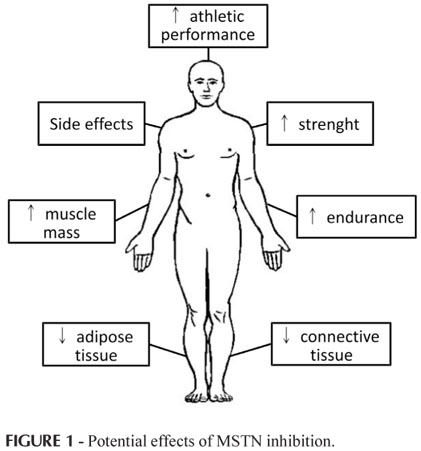Since its discovery, myostatin (MSTN) has been at the forefront of muscle therapy research because intrinsic mutations or inhibition of this protein, by either pharmacological or genetic means, result in muscle hypertrophy and hyperplasia. In addition to muscle growth, MSTN inhibition potentially disturbs connective tissue, leads to strength modulation, facilitates myoblast transplantation, promotes tissue regeneration, induces adipose tissue thermogenesis and increases muscle oxidative phenotype. It is also known that current advances in gene therapy have an impact on sports because of the illicit use of such methods. However, the adverse effects of these methods, their impact on athletic performance in humans and the means of detecting gene doping are as yet unknown. The aim of the present review is to discuss biosynthesis, genetic variants, pharmacological/genetic manipulation, doping and athletic performance in relation to the MSTN pathway. As will be concluded from the manuscript, MSTN emerges as a promising molecule for combating muscle wasting diseases and for triggering wide-ranging discussion in view of its possible use in gene doping.
Myostatin; Myostatin; Myostatin; Gene doping; Gene therapy; Physical performance; Skeletal muscle

